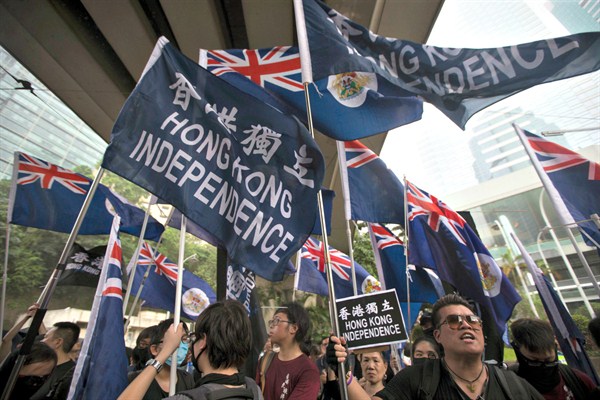Earlier this summer, on July 1, Hong Kong commemorated 20 years since the transfer of its sovereignty from Britain to China. The anniversary reignited the debate over the constitutional principle of “one country, two systems,” which was agreed to by the British and Chinese governments as part of the handover and is meant to guarantee Hong Kong’s autonomy from Beijing until 2047.
Most coverage last month understandably focused on Hong Kong and China, especially since pro-democracy campaigners in Hong Kong, galvanized by mass protests there three years ago, have continued to criticize China’s interference in the territory’s affairs. But while the promise and reality of “one country, two systems” were placed under the microscope, the role of Hong Kong’s former colonial power saw far less coverage. Is Britain doing enough to hold China to the principles it agreed to in Hong Kong?
Many activists in Hong Kong have argued that Britain has the legal right and moral responsibility to prevent Chinese interference in Hong Kong’s democracy. Yet the British government has refrained from any significant intervention. It is swayed by its looming exit from the European Union and the need to realign its economic ties. That is why, as Britain seeks a post-Brexit trade deal with China, firm British action in support of democracy in Hong Kong appears increasingly unlikely. Ironically, for all of Brexit’s symbolic imperial nostalgia, the need to do business with Beijing is forcing London to neglect its own post-colonial commitments to Hong Kong.

